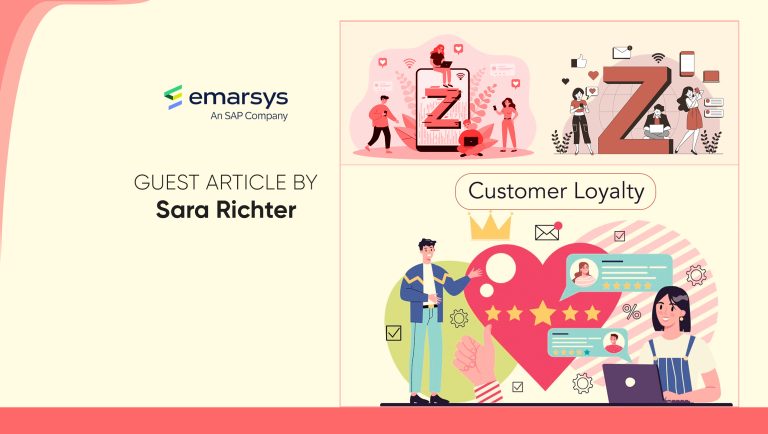It used to be that engaging customers with a phone call fell squarely in the realm of sales and customer service. Today, with the acceleration of digital transformation, the advent of the cookie-less future and shifting consumer shopping behaviors and preferences, branded calling solutions are increasingly becoming a critical part of the martech stack.
Digital acceleration
During the pandemic, digital transformation accelerated at warp speed with companies logging an average seven-year increase in creating digital or digitally enhanced offerings in the span of a few months. Marketing strategies are evolving too as companies keep pace with this digital disruption, adopting innovative martech solutions across a range of digital touchpoints.
Marketing Technology News: MarTech Interview with Matt Pantana, SVP of Product at Unanet AE
Digital is transforming how brands interact with consumers and will remain a key driver of business growth well after the pandemic. Recognizing this, chief marketing officers (CMOs) have shifted spending commitments across their channels and programs, with pure-play digital channels dominating those priorities, accounting for 72.2% of the total marketing budget, according to Gartner research.
The phone call has now evolved into one of these digital channels. Marketers can increase Digital Customer Experience (DCX) to influence brand reputation and customer perceived value with the emergence of the branded phone call.
Branded calls, which feature vivid, personalized business calling screens, provide visual, branded content as well as context showing customers exactly who is calling and why. With branded calling, marketers are able to control that digital display, adding rich data that increases the potential of connecting with the customer and engaging in meaningful conversations.
Prior to this “enhanced caller ID,” businesses faced the challenge of unanswered calls. In fact, research shows that 87% of mobile users don’t answer calls from unknown numbers. By branding this digital channel, marketers can achieve the highest lift across their martech stack, improving call answer rates anywhere from 50-75% and driving significant increases in revenue.
Cookieless future
The Cookieless future is set to create a seismic shift in the online marketing landscape, pushing marketers to rethink strategies. As the cookieless future looms, many companies are not prepared for the demise of third-party cookies. A study by Adobe found that only 37% of companies consider themselves “very prepared” for a cookieless future.
To thrive in a cookieless future, brands must now seize the opportunity to innovate. New marketing strategies are needed to improve customer experience and build trust with consumers. Building this trust is directly linked to brand transparency. Consumers are demanding more transparency from brands with nearly 86% of Americans believing transparency from businesses is more important than ever before.
A signal of trust that marketers can directly influence is with the branded phone call.
As an engagement tool, branded calls allow marketers to harness the power of brand to bring transparency and trust back to the phone call. With this enhanced calling technology, consumers can determine which calls are legitimate as well as who is calling and why – a twofold approach that leads to greater reassurance, loyalty, and trust from consumers.
Shift in consumer shopping behaviors and preferences
The pandemic changed consumer shopping behaviors with a surge in ecommerce and a preference for omnichannel experiences that offer consumer convenience. As consumer shopping habits shifted to online, customers needed new options to personally connect with brands.
Marketing Technology News: MarTech Interview with Michael Osborne, President at Wunderkind
Even as more consumers shop online, they are craving more personal interaction with brands. Findings from a PwC consumer survey of 15,000 global consumers confirm that the human touch still matters. The report revealed that 75% of all survey respondents want more human interaction in the future, not less. However, 59% of all consumers feel companies have lost touch with the human element of customer experience.
Brands are learning how to navigate new consumer behaviors and preferences, driving a movement toward ‘humanized marketing’ which is aimed at adding the human element to the customer journey. Marketers are turning to technology to help deliver a more customer-centric experience that increases consumers’ connection with brands.
PwC noted, “done right, technology can help companies create phenomenal customer experiences and reap the resulting benefits: 82% of the top-performing companies report paying close attention to the human experience around digital and tech.”
Innovative enhanced calling technology is an integral part of the solution for strengthening humanized marketing efforts. This technology allows marketers to create a personalized DCX essential to building strong and continuing customer relationships. Research shows that outside of visiting a physical store, a majority of consumers consider a phone call the most personal form of interaction – over four times that of any other form of communication.
Branded phone calls empower marketers to deliver an enhanced customer experience and pave the way for the meaningful conversations with customers that lead to higher upsell potential and increased revenue. Enhanced calling technology also helps drive customer loyalty and extend customer lifetime value which directly impacts the bottom line. Data shows that increasing customer retention rates by 5% increases profits by 25% to 95%.
Owning the phone call through branded calling solutions can help CMOs successfully deliver on organizational imperatives for advancing digital transformation, improving customer experience, and growing revenue.
Marketing Technology News: MarTech Interview with Joe Chernov, CMO at Pendo






















